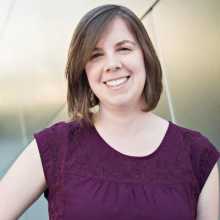In Memory of Kurt Messerschmidt
We are sad to learn of the passing of Kurt Messerschmidt, Holocaust survivor, educator and beloved cantor. He was 102.
Messerschmidt was born Jan. 2, 1915 in Weneuchen, Germany, but moved to Berlin in 1918 and excelled as a linguistics scholar, gymnast and musician. He was well-respected and a leader among his classmates and teachers, but was unable to attend college because of anti-Jewish measures implemented by the Nazis.
He worked for a furniture-mover who protected Jews by employing them so they could avoid deportation, but in 1943 he and his fiancé, Sonja, were deported to the Theresienstadt ghetto in Czechoslovakia. They were married there but separated when Kurt and his brother were deported to Auschwitz-Birkenau and assigned to work detail at Golleschau. There, through his musical talents, Kurt continued to provide comfort to fellow inmates.
Kurt and Henry remained at Golleschau until January 1945 when the camp was evacuated due to the approach of the Soviet Army. After surviving a death march, the brothers arrived first to Sachsenhausen and shortly thereafter to Flossenbürg, where they were separated when Kurt continued on to Ganacker. Despite worsening illness, Kurt managed to survive until he was liberated near Traunstein, Germany, on May 1, 1945.
After liberation, Messerschmidt and Sonja reunited and eventually settled in Portland, Maine where he became a teacher and musician. At the time of his interview he gave to USC Shoah Foundation in 1997, he and Sonja had two children, Eva and Michael. Sonja passed away in 2010.
Messerschmidt’s testimony has been integrated into many of USC Shoah Foundation’s educational programs, particularly his detailed account of the Kristallnacht Pogrom; an organized pogrom against Jews in Germany and Austria that occurred on November 9-10, 1938.
Messerschmidt recounts how two Nazi police officers forced an elderly man to pick up broken pieces of glass from a Jewish-owned cigar shop, while a crowd of bystanders surrounded the man. Messerschmidt and his friend decided to help and picked up the pieces of glass stunning the Nazi police and crowd.
Messerschmidt spoke of the importance of standing up to injustice and to never to act as a bystander. “I assume some of the people there disapproved of what the Nazis did but their disapproval was only silenced. And silence is what did the harm,” said Messerschmidt.
“Kurt’s testimony is a powerful reminder of how individuals can act in the face of intolerance to invoke action,” said Stephen Smith, executive director of USC Shoah Foundation. “His testimony preserved in the Visual History Archive will continue to inspire and teach individuals around the world, for generations.”
